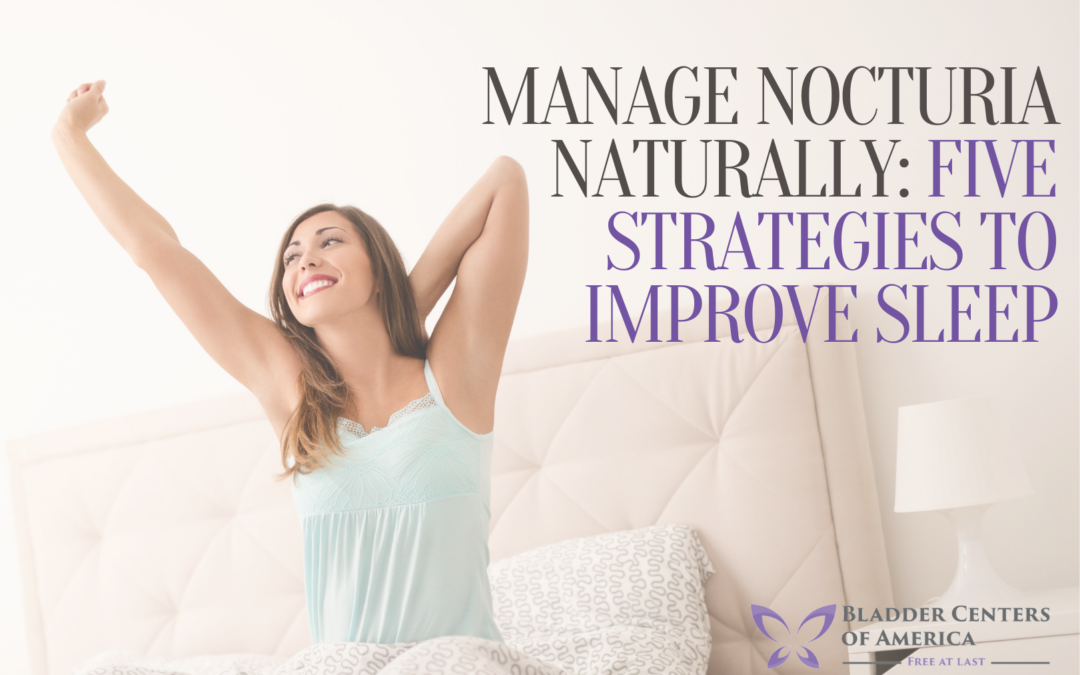and lead to fatigue, reduced productivity, and mood disturbances. It is also extremely
dangerous as it disrupts deep sleep. Interrupted sleep increases one’s risk of diabetes,
stroke, heart attack, dementia and overall inflammation. Fortunately, targeted
nutritional support and lifestyle adjustments can help reduce the frequency of
nighttime urination and improve sleep quality. The following five strategies are
designed to support the body’s natural processes to manage nighttime urination and
enhance sleep.
1. Vitamin D3 (4000-5000 IU/day). I like Dr. Berg’s D3/K2 on Amazon.
Benefits:
– No health issue can be fully resolved unless you get your vitamin D levels to
normal levels.
– Anti-inflammatory Properties: It helps to reduce inflammation that may
contribute to overactivity of the bladder.
– Improves Muscular Function: Helps strengthen bladder muscles and support
healthy bladder control.
-Vitamin D receptors are present in the bladder detrusor muscle and pelvic floor
muscles. Supplementation can enhance muscle strength, which is crucial for
maintaining bladder control and reducing symptoms of urge incontinence.
– Vitamin D deficiency has been associated with an increased risk of overactive
bladder and urinary incontinence. A systematic review and meta-analysis found
that vitamin D supplementation could reduce the risk of urinary incontinence by
66%.
– Clinical Trials on Vitamin D Supplementation: A randomized clinical trial
conducted on postmenopausal women with urge urinary incontinence (UUI) and
vitamin D deficiency showed that weekly supplementation of vitamin D
significantly reduced the severity of urinary incontinence and the frequency of
nocturia.
How to Use: Take 4000-5000 IU of Vitamin D3 daily with food to improve
absorption. Consider monitoring your Vitamin D levels with your healthcare
provider to ensure optimal dosing.
2. Magnesium Glycinate (400-500 mg at Night). Many good brands on Amazon
(Pure, Dr. Berg’s, Solaray…)
Benefits:
– Magnesium helps vitamin D3 to be activated and is a smooth muscle relaxer.
– Magnesium glycinate helps relax the bladder and surrounding muscles, reducing
the urge to urinate at night.
– Improves Sleep Quality: Known to help improve sleep patterns, magnesium can
help you achieve deeper, more restorative sleep.
– Supports Electrolyte Balance: Magnesium plays a key role in balancing
electrolytes, which is essential for fluid regulation.
-Clinical Studies: Several studies have investigated the effects of magnesium
supplementation on urinary symptoms:
– A study involving magnesium showed that 40% of women treated with
magnesium reported subjective improvements in urgency, nocturia, and
incontinence events compared to 16.7% in the placebo group.
– Another study found that 55% of participants receiving magnesium reported
improvements in urinary symptoms, compared to 20% in the placebo group.
How to Use: Take 400-500 mg of magnesium glycinate in the evening, ideally
about 1-2 hours before bed. This form of magnesium is gentle on the stomach and
easily absorbed.
3. Sodium Bicarbonate (baking soda). I like Bicarb Boost on Amazon- 1900-3000
mg at Night)
Benefits:
– Neutralizes Acidic Urine: Sodium bicarbonate helps reduce urine acidity, which
may decrease bladder irritation, inflammation, and the urge to urinate frequently.
– Increases CO2 delivered → Improves oxygenation of tissues → Enhanced
mitochondrial respiration/energy production → Reduces inflammation
Clinical Studies: A study compared the effects of oral sodium bicarbonate with
tolterodine (Detrol), a common medication for OAB, in women with acidic urinary
pH. The study found that both treatments significantly reduced symptoms such as
frequency, nocturia, urgency, and urinary incontinence. The degree of
improvement was similar between the two groups, indicating that sodium
bicarbonate could be as effective as tolterodine for these patients.
Another study compared sodium bicarbonate with solifenacin (Vesicare), another
medication used for OAB. This study also found that sodium bicarbonate
significantly improved bladder symptoms and symptom scores, with results
comparable to those achieved with solifenacin (Vesicare) treatment.
How to Use: Take 1900-3000 mg of sodium bicarbonate (such as a bicarbonate
powder or tablet) in the evening with water. Avoid eating large meals before taking
it, as it may interfere with stomach pH and digestion.
4. Melatonin (Start with 5-10 mg and can increase to 50 mg/night if needed).
Many good brands on Amazon (Pure, Powerful Melatonin, Nature Made…).
Benefits:
– Regulates Sleep-Wake Cycle: Melatonin helps your body establish a natural
rhythm of sleep, improving both the depth and duration of sleep.
-Melatonin is a natural hormone that is produced in the body but decreases as we
age.
– Reduces Nocturnal Urine Production: It has been shown to lower urine
production at night, reducing the need to wake up and urinate.
– Antioxidant Properties: Melatonin is also a powerful antioxidant, which may
protect against inflammation that can exacerbate nocturia.
How to Use: Begin with 5-10 mg of melatonin about 30 minutes before bed. If
nocturia persists, you may gradually increase up to 50 mg per night under the
guidance of a healthcare provider.
5. Optimize Circadian Rhythm
Benefits:
– Increases Nighttime ADH (Anti-Diuretic Hormone) Production: A healthy
circadian rhythm encourages your body to produce more ADH at night, reducing
urine production and decreasing the urge to urinate. ADH is an anti-pee hormone.
– Improves Overall Sleep Quality: Maintaining a regular sleep-wake schedule can
support your body’s natural rhythm and improve sleep continuity.
– Supports Bladder Health: Regular circadian rhythm maintenance supports your
entire hormonal system, benefiting fluid balance and bladder function.
How to Implement:
– Maintain Consistent Sleep and Wake Times: Going to bed and waking up at the
same time each day helps regulate your circadian rhythm.
– Reduce Blue Light Exposure: Limit screen time an hour before bed to promote
melatonin production.
– Keep your room dark and cool. Use blackout shades if possible.
– Morning Sunlight Exposure: Morning light exposure (15-30 minutes outside)
helps to set your internal clock, improving your nighttime sleep quality.
– Have your environment inside match that of the outdoors. Dim lights or turn them
off at night.

